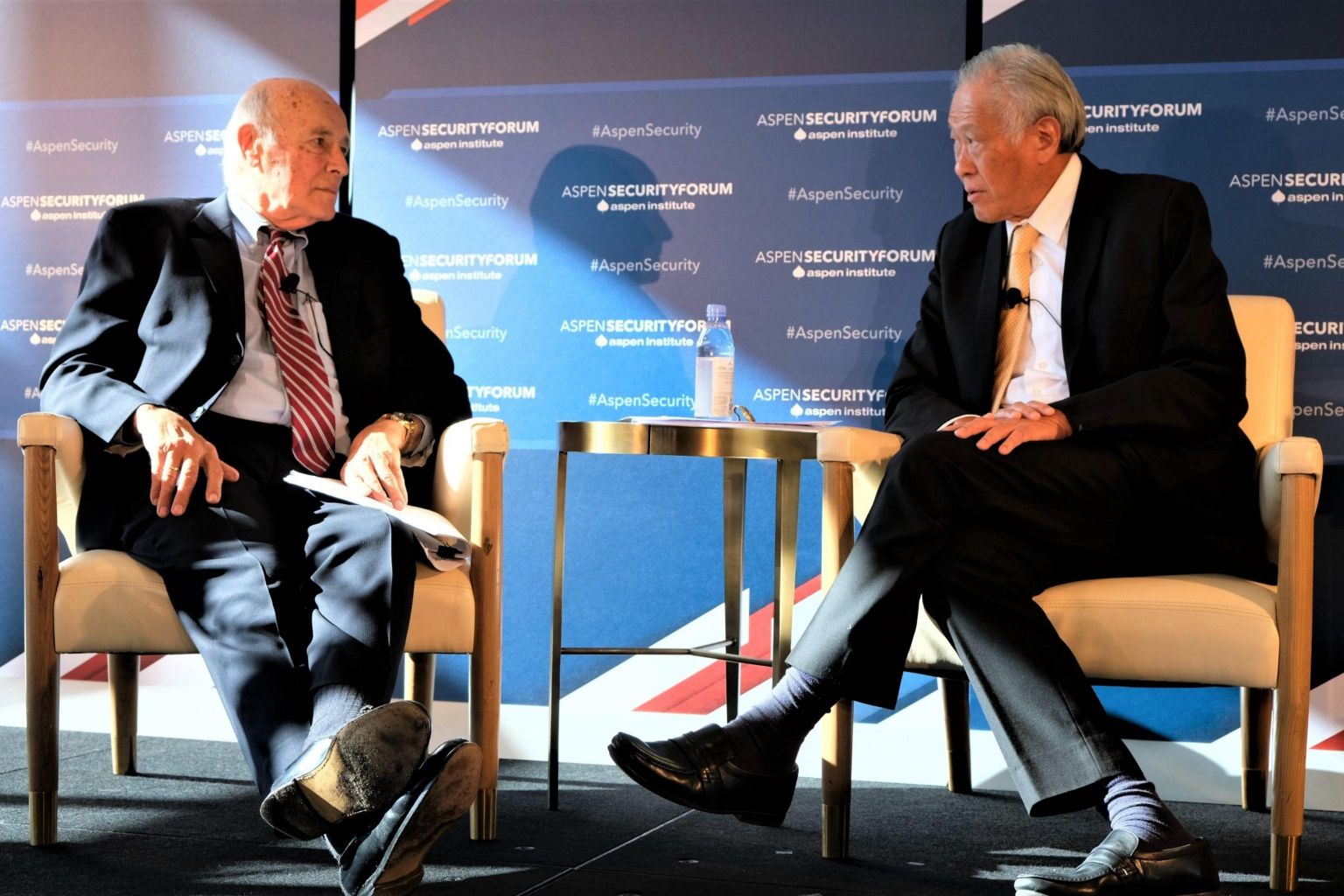US leadership in Asia vital for region's prosperity: Defence Minister Ng Eng Hen
Sign up now: Get ST's newsletters delivered to your inbox

Minister for Defence Dr Ng Eng Hen (right) speaking at the 12th Aspen Security Forum on Nov 3, 2021.
PHOTO: MINDEF
Follow topic:
WASHINGTON - Singapore continues to believe that the United States' military presence in the Asia-Pacific and its global leadership in finance and trade are crucial for the region's prosperity, said Defence Minister Ng Eng Hen at a security forum in Washington on Wednesday (Nov 3).
"South-east Asian nations needed a climate of confidence and continuing security, which America could provide. The Singapore government held that view throughout...we continued that belief, as we continue today," Dr Ng said in a keynote address.
Meanwhile, China's transformative economic growth has been good for Asia as well, he said at the Aspen Security Forum, attended by defence officials from the US and around the world.
"China's central focus has been driven primarily by its desire to raise standards of living, and more recently, to take its rightful place on the global stage," he said.
Dr Ng added that China would fiercely guard the political legitimacy of the Chinese Communist Party in the belief that it is the only entity that can guarantee progress and prosperity.
In his speech and in later comments to Singapore media, Dr Ng gave his take on Singapore's perspectives on the US, China and how each viewed their deepening strategic rivalry.
"The preoccupation with China is at a heightened level. I've not seen that kind of preoccupation in my last decade or so," said Dr Ng, who has been defence minister since 2011.
America is acutely aware of its challenges and recognises that to respond to China, it needs to economically reinvigorate itself and offer economic leadership in the region, said Dr Ng, who met several current and former defence officials during his visit to Washington.
As for the Aukus security pact between Australia, Britain and the US, which has riled China, Dr Ng said that Singapore hopes it will be a stabilising force for the region.
"Whether Aukus is a stabilising force depends on what Aukus does. And we have every reassurance from the Australians, from the Americans, that it's meant to be a stabilising force. So we certainly hope it is," said Dr Ng.
For the Chinese government, the issue of Taiwan's sovereignty is a fundamental one that "goes to the heart of their political legitimacy", said Dr Ng, calling it a red line issue.
"Miscalculations can occur," he said. "I can think of no scenario in which there are winners, if there is an actual physical confrontation over Taiwan. So I would advise us to stay very far away from that."
Several speakers at the Aspen forum addressed China and the issue of Taiwan, including chairman of the US Joint Chiefs of Staff Mark Milley, who said that China is unlikely to try to use military force to seize Taiwan in the next 24 months.
But if it did, America's forces "absolutely have the capability" to defend Taipei, he said.
The Pentagon's top general also conceded that Beijing is "clearly and unambiguously building the capability to provide those options to the national leadership if they so choose at some point in the future".
But General Milley said he agreed with America's longstanding policy of strategic ambiguity over whether it would defend Taiwan if China tried to seize it.
In contrast, California lawmaker Adam Schiff, who chairs the House Intelligence Committee, said at a later session of the conference that the Biden administration should be less ambiguous about whether it would defend Taiwan.
"We need to be much clearer about our obligation to defend Taiwan," said Mr Schiff.

